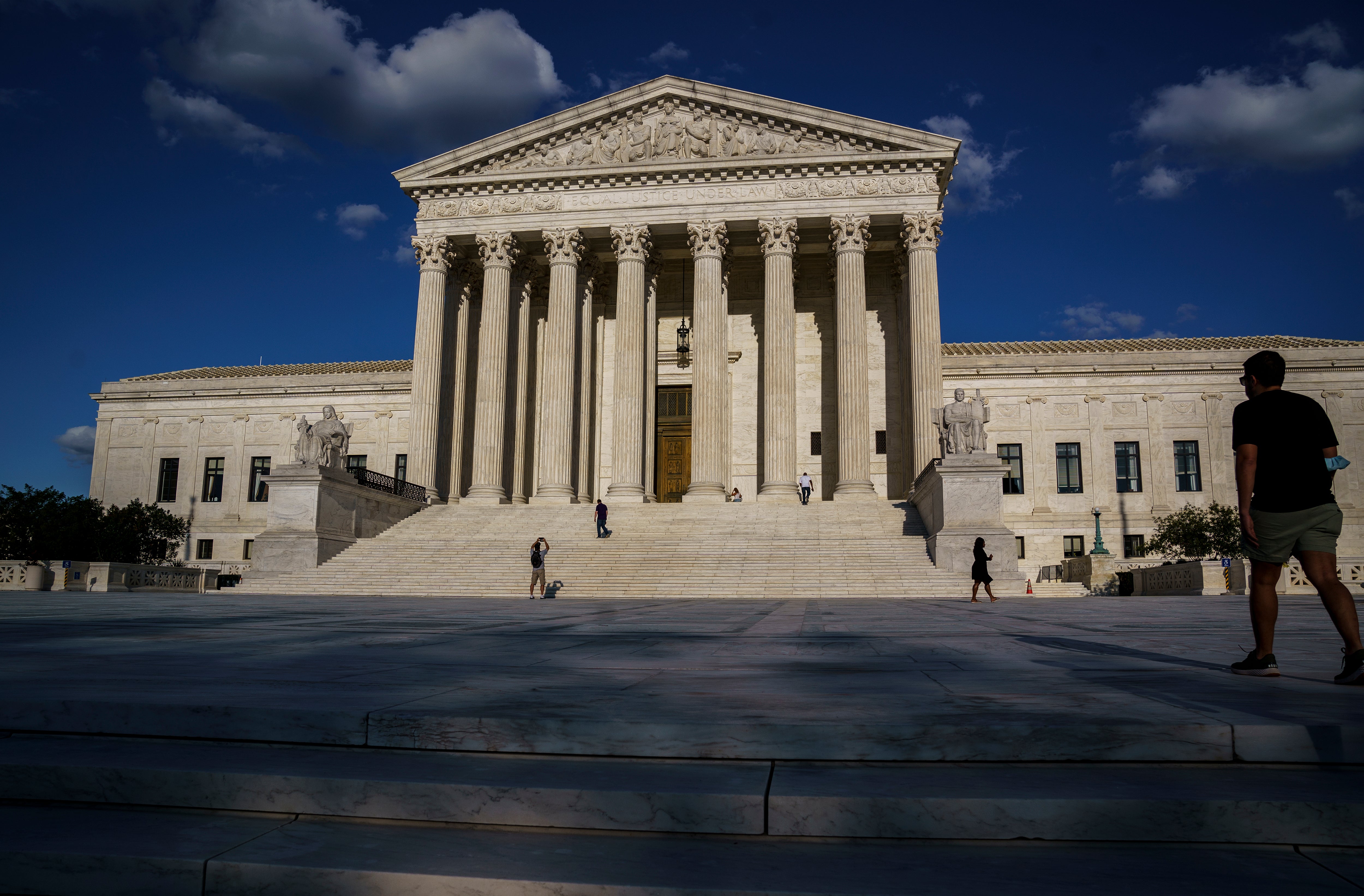Providers urge Supreme Court to reject 15-week abortion ban
Abortion providers are urging the Supreme Court to reject Mississippi’s 15-week prohibition on most abortions, saying a decision to uphold it would “invite states to ban abortion entirely.”

Your support helps us to tell the story
From reproductive rights to climate change to Big Tech, The Independent is on the ground when the story is developing. Whether it's investigating the financials of Elon Musk's pro-Trump PAC or producing our latest documentary, 'The A Word', which shines a light on the American women fighting for reproductive rights, we know how important it is to parse out the facts from the messaging.
At such a critical moment in US history, we need reporters on the ground. Your donation allows us to keep sending journalists to speak to both sides of the story.
The Independent is trusted by Americans across the entire political spectrum. And unlike many other quality news outlets, we choose not to lock Americans out of our reporting and analysis with paywalls. We believe quality journalism should be available to everyone, paid for by those who can afford it.
Your support makes all the difference.Abortion providers urged the Supreme Court Monday to reject Mississippi s 15-week prohibition on most abortions, saying a decision to uphold it would “invite states to ban abortion entirely.”
The filing with the high court comes at a time of significant peril for abortion rights in the U.S., with a Supreme Court reshaped by three conservative justices appointed by former President Donald Trump
Mississippi already has told the court it should overrule its 1973 decision in Roe v. Wade that established a nationwide right to abortion.
Less than two weeks ago, the justices by a 5-4 vote allowed a Texas law to take effect that prohibits abortions once medical professionals can detect cardiac activity, usually around six weeks. The court did not rule on the merits of the law, which the Biden administration and Texas clinics have challenged in federal court.
If the court upholds the Mississippi law, it would lead quickly to the elimination of abortion services in large sections of the Midwest and South, where states have aggressively pursued abortion restrictions, the providers told the court.
Mississippi's legal stance is “a request that the Court scuttle a half-century of precedent and invite states to ban abortion entirely,” the providers wrote.
The change in the composition of the court appears to be driving the case to overturn Roe. The court had rejected state appeals of similar laws in the past.
Of the Trump appointees, Justices Brett Kavanaugh and Amy Coney Barrett took seats previously held by Anthony Kennedy and Ruth Bader Ginsburg, justices who voted to uphold abortion rights. Kavanaugh once served as a law clerk to Kennedy.
But the makeup of the court is not sufficient to justify a dramatic change in the law, the providers wrote.
“Unless the Court is to be perceived as representing nothing more than the preferences of its current membership, it is critical that judicial protection hold firm absent the most dramatic and unexpected changes in law or fact,” the providers wrote.
A day earlier, Barrett and Justice Stephen Breyer the leader of the court's diminished liberal wing, argued in separate appearances that it's wrong to view the court in partisan terms.
Barrett was among the conservative justices who allowed the Texas law to take effect.
The Mississippi 15-week law was enacted in 2018, but was blocked after a federal court challenge. The state’s only abortion clinic, Jackson Women’s Health Organization, remains open and offers abortions up to 16 weeks of pregnancy. About 100 abortions a year are done after the 15th week, the providers said.
More than 90% of abortions in the U.S. take place in the first 13 weeks of pregnancy, according to the Centers for Disease Control and Prevention.
The state has said its law would not affect many women, but the providers countered by saying that argument “is at odds with the recognition of constitutional rights in general. The very essence of a constitutional right is that the government cannot outright prohibit a certain subset of people, no matter how small, from exercising that right.”
The case hasn't yet been scheduled for arguments, which could take place in the late fall or early winter. A decision is not expected until June, and the outcome could be an issue in next year's state and congressional campaigns.